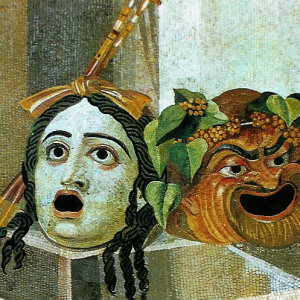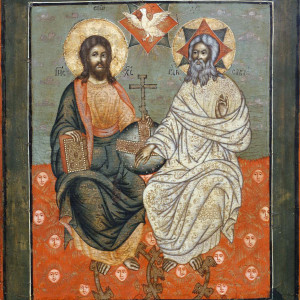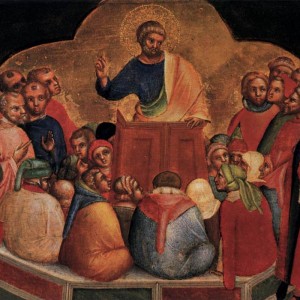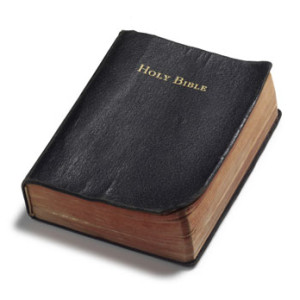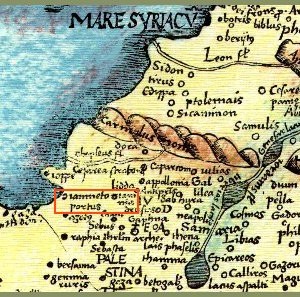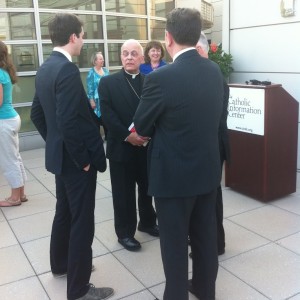Caspar Schwenckfeld Catholic beliefs are often rejected by “Bible-only” Protestants on the grounds that they are “extra-Scriptural Traditions.” This accusation typically misses the mark: on teachings like the priesthood, or the Eucharist, or regenerative baptism, it’s not that the Church is deriving these views from a source other than Scripture. It’s that she sees support… Continue reading Reason #6 to Reject the Reformation: Patristic Scriptural Exegesis
Tag: sola scriptura
The Church, the Bible, and the Trinity of Divine Persons
Did you know that the word “person” comes to us through Catholic philosophy and theology? Theatrical masks of Comedy and Tragedy, Roman mosaic, (2nd c.). It’s true, although the word existed before Christianity in a different context. Etymologically, the word “person” originally comes from a Latin word meaning “sounding through” (personare), which referred to actors… Continue reading The Church, the Bible, and the Trinity of Divine Persons
Six Reasons to Reject “the Perspicuity of Scripture”
Near the root of what divides Protestantism from Catholicism is a question concerning the clarity (or, in technical parlance, the “perspicuity”) of Sacred Scripture. The Catholic view is that Scripture needs interpretation; the typical Protestant view is that Scripture is so clear that there are no ambiguities needing authoritative interpretation by the Church. Rembrandt, The Baptism… Continue reading Six Reasons to Reject “the Perspicuity of Scripture”
Did Augustine Deny that the Catholic Church Gave Us the Scriptures?
A Reformed blogger, TurretinFan, rejects the authority of the early Ecumenical Councils, and suggests that every dispute needs to be resolved through Scripture, which is allegedly independent of the Catholic Church, the property of all. He cites to this passage from St. Augustine for support, which he suggests shows that Augustine “sounded exactly like a Sola Scriptura… Continue reading Did Augustine Deny that the Catholic Church Gave Us the Scriptures?
Was Sola Scriptura True During the Apostolic Age?
Sola Scriptura (“Scripture alone”) is the Protestant belief that all Christian doctrines should be taken from Scripture alone. Given this, it seems fair to ask Protestants, “Was sola Scriptura true during the Apostolic age?” That is, during the time of the New Testament, did those Christians believers rely on the Bible alone for their doctrines? The Reformed… Continue reading Was Sola Scriptura True During the Apostolic Age?
Answering Nine Protestant Arguments About the Bible
After yesterday’s post, Brent Stubbs pointed out that a thoughtful Protestant named Shawn Madden raised a number of arguments against the Catholic Bible, and in favor of the Protestant Bible, in the comments at Called to Communion. His full argument is here, but he essentially makes nine points: Many versions of the TNK used by Greek-speaking Jews… Continue reading Answering Nine Protestant Arguments About the Bible
Can Protestants Rely Upon the “Council of Jamnia” for Their Bible?
A good friend of mine is currently studying to become a Presbyterian minister at Westminster Theological Seminary. Before he left, I asked him two questions: Where does the Bible dictate sola Scriptura? Where does the Bible dictate the precise canon of Scripture? After all, for sola Scriptura not to be self-refuting, both of these seemingly… Continue reading Can Protestants Rely Upon the “Council of Jamnia” for Their Bible?
An Evangelical Disproves Evangelicalism
Yesterday, I talked about Scot McKnight’s essay From Wheaton to Rome: Why Evangelicals become Roman Catholic, in which he explores reasons people leave Evangelicalism for Catholicism. It’s written from the perspective of a Protestant (McKnight’s an Anabaptist), but one more interested in finding out the real reasons people become Catholic, than on belittling those reasons. Because… Continue reading An Evangelical Disproves Evangelicalism
How Did the Puritans Become Unitarians?
One of the strangest religious transitions in American history is that the Puritan congregations in New England became Unitarian Universalists. It would be hard to find a religious group who cared more about getting doctrine exactly right than the Puritans, yet within the span of only a few generations, they’d devolved into something unrecognizable as either… Continue reading How Did the Puritans Become Unitarians?
Sola Scriptura and the Authorship of the Gospels
In recent years, liberal Biblical scholars have trotted out all sorts of novel theories about the authorship of the Gospels. For example, there have been claims that the Gospel of Luke was written by a woman, despite his use of the masculine in referring to himself in Luke 1:3 (it’s masculine in the Greek, not… Continue reading Sola Scriptura and the Authorship of the Gospels

